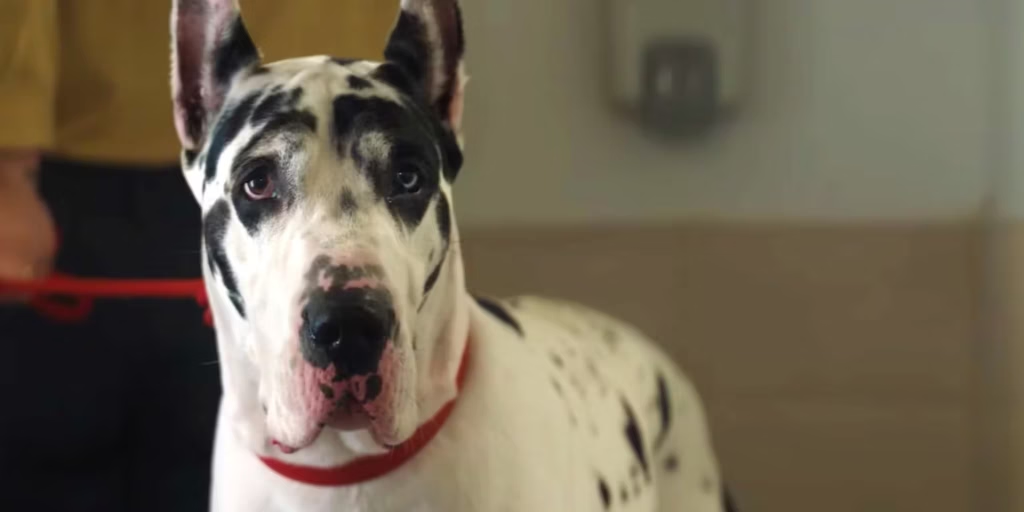“What’s going to happen to the dog?”

The Friend boasts the only kind of opening a film such as this could have. The scene consists of a dinner party in a New York apartment where a group of people are listening to a man named Walter (Bill Murray) telling an outrageous story about his past. He continues talking for a spell until a woman named Iris (Naomi Watts) interrupts him, laughingly calling him on his both his past and present self. It’s a great introduction that establishes a rapport between the characters and helps you to see why the two of them have been friends for years. Another reason this opening scene so effective has to do with the fact that as soon as it’s over, we learn that Walter is no longer with us. We immediately cut to Iris in her apartment getting ready for her friend’s memorial. It’s an opening that calls to mind the Joan Didion line of “life changing in an instant,” that immediate shift that happens to a person’s reality the minute death comes for someone they love. It’s a tremendous opening and brilliantly sets the tone for one of the most empathetic films to deal with the subject in quite some time.

In The Friend, New York writer Iris (Watts) is struggling to finish the book about her close friend and fellow writer Walter’s (Murray) life due to a creative block stemming from the effect of his recent passing by suicide. When it’s discovered that one of Walter’s final wishes is that his great dane, Apollo, be left to Iris, it takes her by surprise, turning her already fragile world upside down.

As I pointed out earlier, the chemistry between Iris and Walter is great and features a shorthand so believable, it can’t help but make the following two hours feel all the more meaningful. Just as in life, grief isn’t the easiest of subjects to deal with on film, a problem which The Friend thankfully doesn’t have due to the realistic touches it inserts into its screenplay. This includes Iris listening to old voicemails of Walter, trying to replay the moments she first heard them when he was alive and life felt right. Other more cinematic touches also speak to the grief experience, including alternating narrations from Iris and Walter which, because of a purposeful lack of context, comes across as a sort of correspondence they’re having in another life. Both feel like testaments to the non-tangible items a person leaves behind once they’ve passed on. Their words, the sound of their voice, and our memories of them, all have the ability to remain. These and other elements help to make The Friend a truthful look at the aftermath of losing someone and a reminder that it’s not just immediate family and significant others who mourn when a person’s life has ended.

Directors Scott McGehee and David Siegel have taken great care to ensure that The Friend stresses the value of human/animal relationships, especially during times of loss. “How do you explain death to a dog,” a neighbor asks at one point. It’s a good question, and one that’s not easily answered. For the most part, Iris’ interactions with Apollo don’t veer too much into the kind of cutesy animal/human schtick that some would expect to find here. Instead, both are shown as trying to understand each other and exist in the same space in the wake of losing someone they loved very much. The adjustment between the two is complicated and messy, especially in the way Apollo takes over Iris’ bed and won’t give it up. But the grieving process is itself complicated and messy, a fact the film understands. A scene with Apollo crying in the middle of the night before being comforted by Iris is a great bonding moment between the two of them. Meanwhile, the emotional response from both animal and human at discovering an old email from Walter, which Iris reads aloud, is especially moving. Recognizing Walter’s words, Apollo spots the spirit of his departed master, and in that moment, both him and Iris share in mourning the person they each loved so deeply.

Watts’ turn here is, without question, one of the best in her career. On paper, the character of Iris might not seem like much of a stretch for the actress. Yet there are challenges within the internal emotions Iris keeps from the world that Watts must let us in on. She does this through an incredibly delicate performance that’s both grounded and deep. Through a collection of beautiful subtleties, Watts is able to paint a credible portrait of a grief-stricken soul now trying to make the most of what remains. Her work is aided greatly thanks to an incredibly effective Murray. Even though his character is only seen in brief glimpses, the actor still manages a performance full of nuance and warmth, making you understand why someone would miss Walter.

The Friend belongs to that sub-genre of films set in New York that are part of the “8 million stories” philosophy attached to the city. But who is the titular friend of the title? Is it Iris, who apparently was Walter’s go-to and the one he leaned on the most? Is Apollo the friend because of the companionship he gives Iris in the wake of Walter’s death? Is the friend Walter himself; the unpredictable cynic who made an imprint on both their lives and is now gone? More than likely, the answer is all three of them. My sincere hope is that even though The Friend is an early year release, it’s eventually found by the people it’s meant to touch. What looks like a sentimental heart-tugger on the surface ends up being a beautiful character study, a thoughtful comment on grief, and a testament to the bond between humans and animals.



